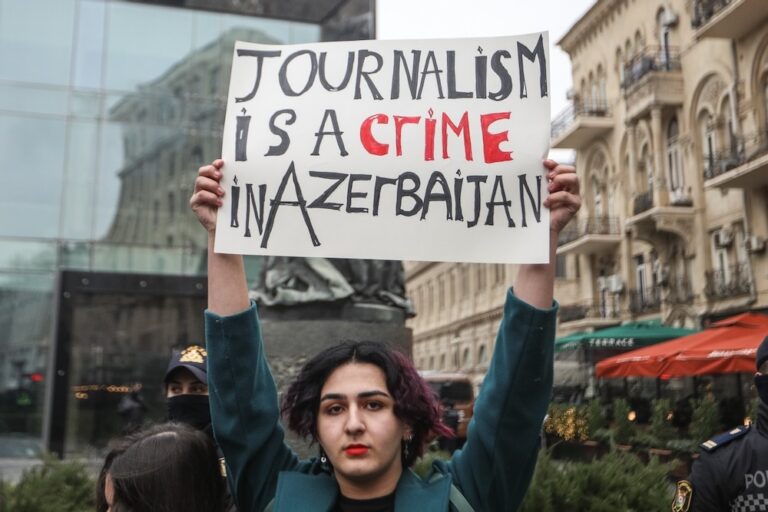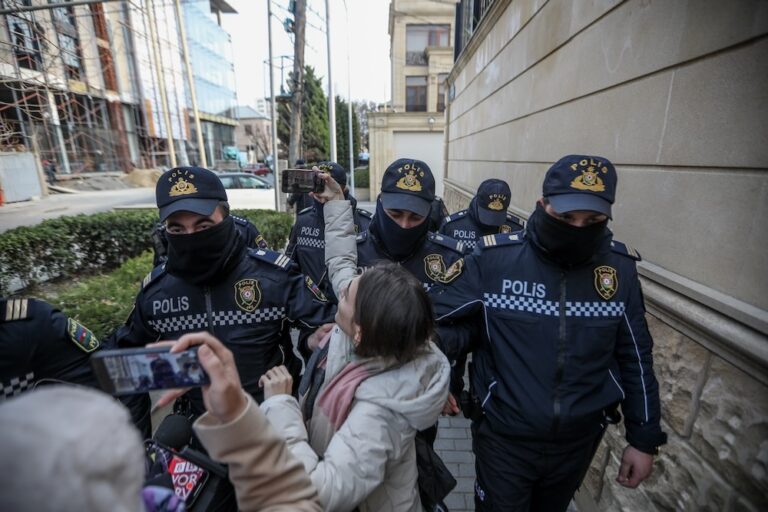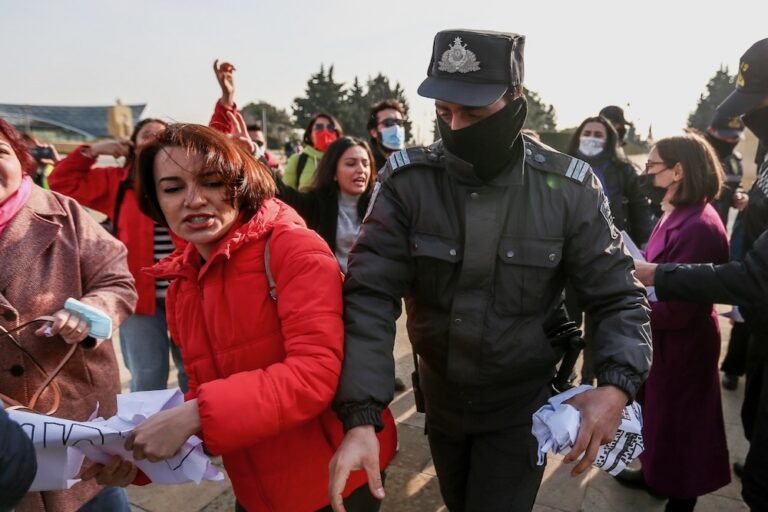IRFS has appealed to EU Commission President José Manuel Barroso to address the free expression situation in the country during his 13-14 January visit.
(IRFS/IFEX) – 12 January 2011 – The following is a letter of appeal from IRFS to European Commission President José Manuel Barroso addressing the free expression situation in the country on the occasion of his 13-14 January 2011 visit to Azerbaijan.
José Manuel Barroso
President of the European Commission
1049 Brussels, Belgium
Dear President Barroso,
We have decided to appeal to you regarding your planned visit to Azerbaijan on January 13-14, 2011. We would like to inform you that the problems of freedom of speech and expression remain unresolved in Azerbaijan.
The editor-in-chief of “Realniy Azerbaidjan” and “Gundelik Azerbaiajn” newspapers, Eynulla Fatullayev, who was imprisoned in 2007, has not been released, despite a European Court of Human Rights (ECHR) ruling calling for his immediate release. Moreover, the Azerbaijani government refuses to pay Fatullayev the compensation set out by the ECHR judgment. In April, 2010, the ECHR judgment annulled the charges brought against the journalist; the Grand Chamber upheld the judgment on October 4, 2010.
Despite continued and insistent calls by the local and international community, the Law on Defamation has not been adopted; consequently, the prosecution of journalists and persons speaking to mass media, under charges of libel (Article 147 of Criminal Code) and insult (Article 148), has continued for many years. In addition, the absence of a free economy in the country means there is no advertising market to finance media outlets. Because of this, independent and critical mass media outlets are either shut down, or must survive by changing their course, replacing the criticism with praise for the ruling regime.
The murderers of the late “Monitor” magazine editor-in-chief Elmar Huseynov, who was killed in 2005, have not yet been found. Moreover, the Azerbaijani government’s position in the years following the murder shows that they are not interested in solving the crime.
Journalists covering protests and carrying out their professional work are often subjected to physical assault; their complaints are never investigated and the guilty persons are never punished.
The results of the monitoring carried out over the past two years, with support from European Commission as part of the “Free Airwaves” Project, showed that local TV channels don’t abide by the principles of diversity of opinions, political pluralism, accuracy, balance, or objectivity. This and other trends show that TV stations in Azerbaijan are directly controlled by the government and serve the ruling regime’s interests. Today, it is not possible to launch a TV or radio news channel, as the National TV and Radio Council is controlled by the ruling establishment, who hold a monopoly on the distribution of frequencies. The broadcasts of Radio Liberty, BBC and Voice of America radio stations, which were suspended on January 1, 2009, have not yet been restored. As a result of these various situations, Azerbaijani citizens are deprived of alternative information sources.
We are concerned over the multiple legal violations observed during the 2010 parliamentary elections in Azerbaijan, as well as the lack of election climate, freedom of assembly and freedom of expression. The arrest of persons with dissident opinions for their criticism of authorities and their political affiliation in early 2011, has increased our concerns and leads us to fear that the number of human rights violations will increase even more.
As civil society representatives, we support the expansion of EU-Azerbaijan cooperation, but we want to see this cooperation develop substantively and comprehensively, not artificially, in accordance with Azerbaijan’s obligations in the framework of the Neighborhood Policy and Eastern Partnership. We call on you to discuss, in your meeting with the Azerbaijani leadership, the problems of freedom of expression, election rights, freedom of assembly and other rights and liberties, before the discussion of energy, security and economic cooperation issues, and to take concrete steps to improve the current situation.
Sincerely,
Emin Huseynov,
Chairman of the Institute for Reporters’ Freedom and Safety


